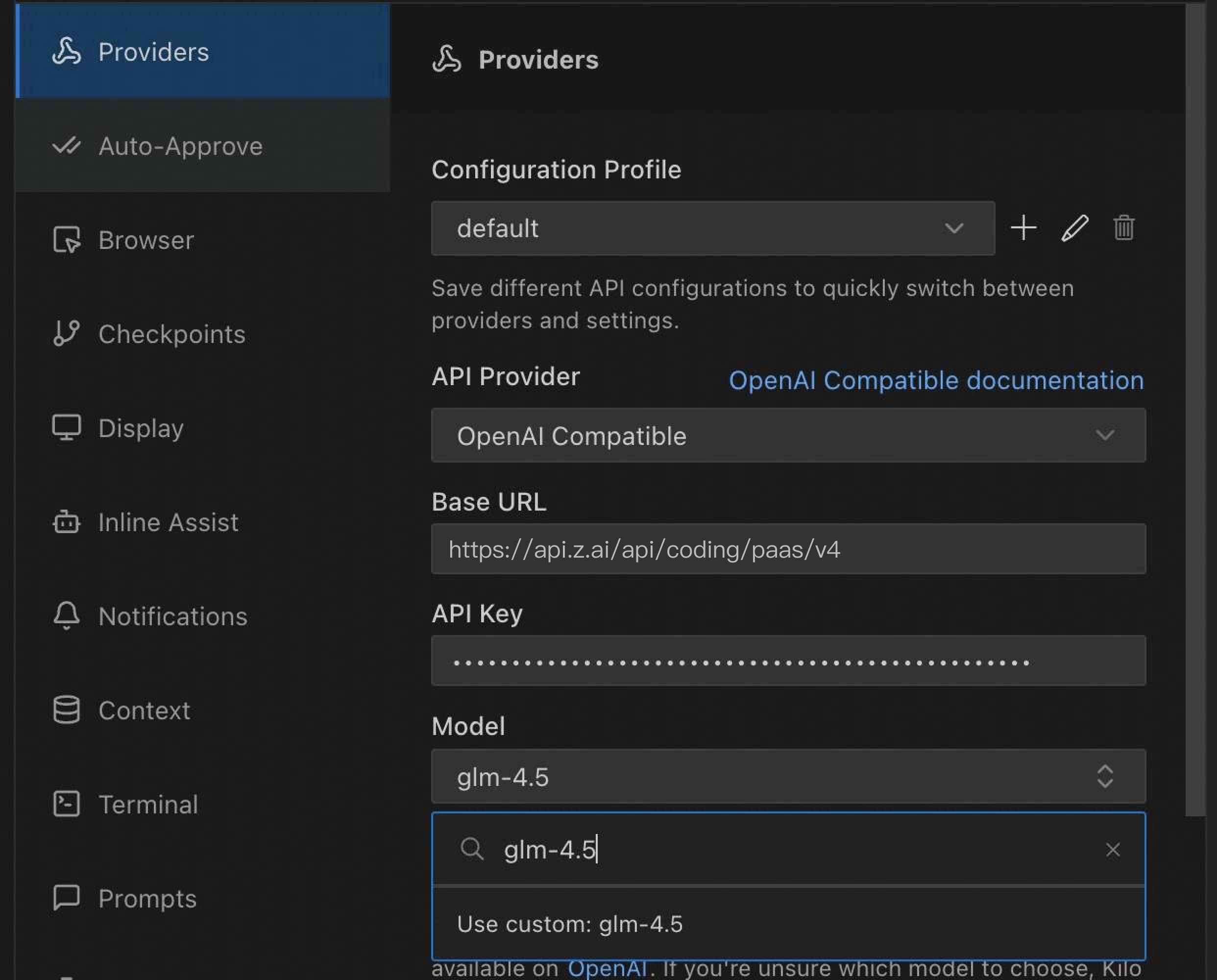Tool Guide
Kilo Code
Methods for Using the GLM Coding Plan in Kilo Code plugin
Kilo Code is a powerful VS Code plugin with support for MCP (Model Context Protocol), enabling you to generate code, debug, and manage projects directly within the editor — delivering a more efficient and intelligent development experience.
Kilo Code’s performance is further enhanced with the GLM Coding Plan,, helping you achieve greater efficiency and stability in both code creation and project collaboration.




Step 1: Installing the Kilo Code Plugin
1. Open the Extensions Marketplace
a. Launch VS Code b. Click the Extensions Marketplace icon on the left sidebar c. Search forKilo Code in the search bar
d. Locate the Kilo Code plugin

2. Install the Plugin
a. Click theInstall button to begin installation
b. After installation, choose to trust the developer

Step 2. Configuring API Settings
1. Select API Key Authentication
ChooseUse your own API key

2. Enter Configuration Details
Fill in the following information as specified:- API Provider: Select
OpenAI Compatible - OpenAI Base URL: Enter
https://api.z.ai/api/coding/paas/v4 - API Key: Input your Z.AI API Key
- Model Name: Enter
glm-4.5and select Use Custom

Step 3. Configuring MCP (Optional)
1. Add an MCP Server
Kilo Code supports MCP (Model Context Protocol) to extend the capabilities of AI models. Below is an example configuration for an SQLite MCP server: Refer to the https://github.com/modelcontextprotocol/servers-archived/tree/main/src/sqlite documentation and add the MCP configuration:Step 4. Getting Started
Once configured, you can enter prompts in the input box to leverage the AI model for various tasks, such as:- Analyzing database table structures
- Calculating statistics and averages
- Generating and optimizing SQL queries
- Code generation and refactoring
- Project analysis and documentation writing